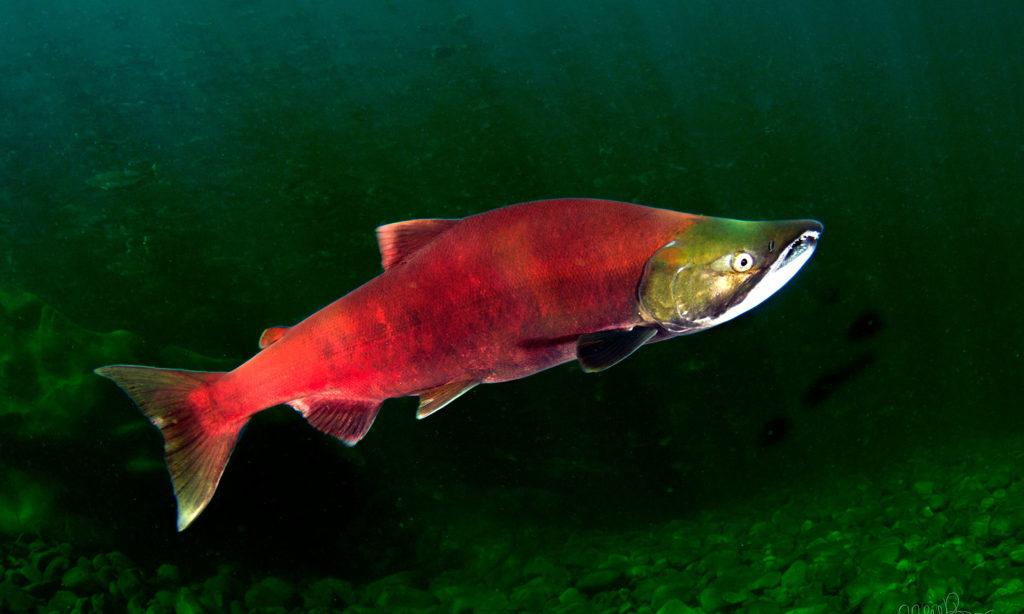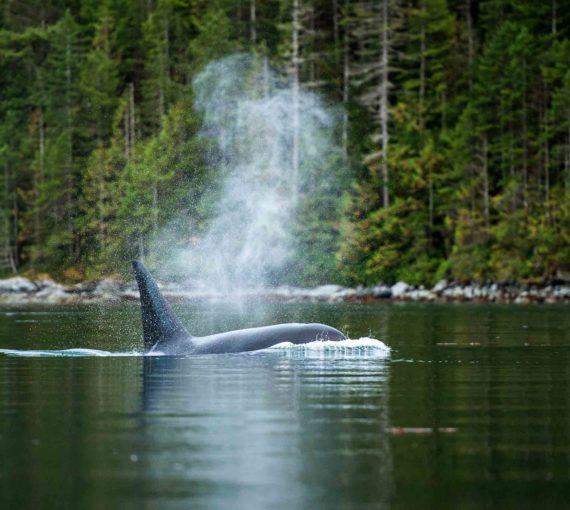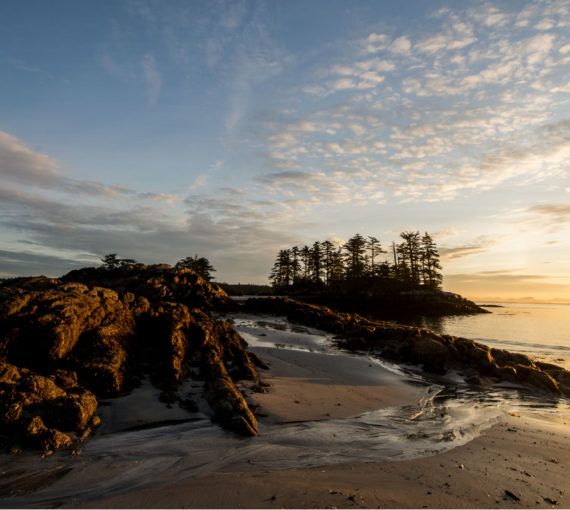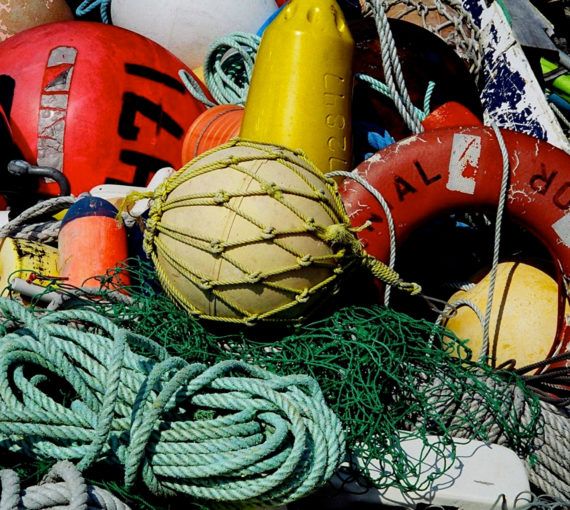
(Photo: April Bencze)
During their phenomenal journey from inland waterways to the ocean and back, salmon nourish the spectacular coastal forests and the life within them, including bears, eagles and people. As important as salmon are, their existence is often precarious. One unforeseen natural event can spell the demise of entire populations, especially when other factors have already caused their numbers to drop. The massive landslide that blocked B.C.’s Fraser River at Big Bar in late June was one of those events.
In the province that started World Rivers Day, we’re so used to the image of rivers teeming with fish that it’s hard to imagine them without. But we continue to push some species to the brink of extinction even when a single event — human or natural — could finish them off.
The natural and human-caused threats to this keystone B.C. species and its habitat are pushing once-abundant Fraser River ecosystems to the edge. Fraser River Chinook salmon are declining rapidly, with most populations listed as threatened or endangered. Meanwhile, Fraser sockeye returns in 2019 may be the lowest on record, with only an estimated 600,000 returning. Scientists expected five million.
When salmon population numbers are low, the overall survival of many species in the food chain becomes more difficult.
The Big Bar landslide illustrates the enormous impact unforeseen events can have on these vulnerable salmon species, particularly Fraser River Chinook salmon — the primary food for endangered southern resident orcas. Just as nourishment builds up a person’s strength to fight disease, species abundance and diversity build up ecosystem resilience. When salmon population numbers are low, the overall survival of many species in the food chain becomes more difficult.
What if salmon were to vanish from entire river systems completely — all at once? The well-being of our communities is deeply rooted in the health of the rivers, and the fish within them. Rivers are like arteries, carrying vital resources, such as nitrogen-rich salmon, throughout the ecosystem. At least 138 species along the Pacific coast, including humans, rely heavily on the Fraser River for everything from fishing and tourism to transportation. This dependence is deeply ingrained in the ecosystem, economy and culture.
To safeguard our ecosystems, the federal government must work with Indigenous communities and stakeholders to create and implement emergency recovery plans for the most vulnerable Fraser River salmon. It is crucial to expand on existing management measures, to better address impacts from fishing and habitat loss while acknowledging shifting conditions due to climate change. Government officials — with support from community organizations, scientists and Indigenous groups — must address critical habitat issues, including passage barriers in the Fraser estuary and lower river. We can no longer play the blame game. Each part of our community holds a piece of the solution for this crisis.
Government officials — with support from community organizations, scientists and Indigenous groups — must address critical habitat issues.
While all of us have a stake in the health of the river and salmon, Fisheries and Oceans Canada and Indigenous governments have the power to carefully manage fisheries so they meet recovery-based escapement objectives. Effective management means fishers would only be allowed to harvest a salmon species once it is known that a minimum number will reach spawning grounds.
As salmon populations dwindle and human activity continues to damage river systems, we are putting at risk key species that nourish us, sustain the environment and ultimately make the coast a magical, life-supporting place. Nutrient-rich salmon nourish bears, the forest and ecosystems, including commercial tree species and salmon fry. If we fail to safeguard a key species, we will have to do their work for the ecosystem. We simply don’t have the knowledge or the resources, or even a good understanding of the long-term consequences. It would be far better to ensure that salmon species survive and recover.
Our work
Always grounded in sound evidence, the David Suzuki Foundation empowers people to take action in their communities on the environmental challenges we collectively face.



